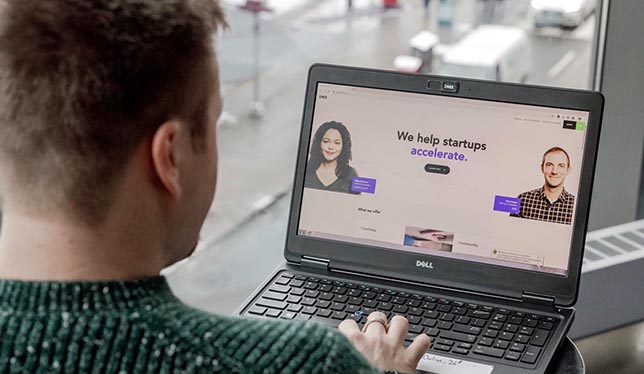The pandemic has stolen the central tenet of university start-ups: in-person, social interactions
Virtual formats can't replace face-to-face interactions, but will entrepreneurship programs use the past year to be, in true entrepreneurial fashion, innovative?

A year has gone by since the pandemic brought a sea of changes to how we work and learn. For the entrepreneurship education community across colleges and universities, social isolation and lockdowns have been more than a disruption – they have undermined a core tenet of their work.
Campus-based entrepreneurship centres and programs are very diverse. The Creative Destructive Lab at the University of Toronto’s Rotman School of Management, Ryerson University’s DMZ and the University of Waterloo’s Velocity may come to mind, but these high-profile units are hardly representative of the overall landscape. There is a diverse array of entrepreneurship programs in higher education that vary tremendously in terms of their goals, resources, profiles and activities. From the fully staffed incubators to one-person academic initiatives, these programs dot college and university campuses across the country. Some basically promote informal gatherings of students around speaker series and workshops to help them grasp basic entrepreneurial skills. Others are highly structured mentorship and networking programs aimed at growing start-ups.
These differences are substantial, but entrepreneurship programs do share one key principle. Their basic theory of action revolves around the benefits of planned and unplanned social interactions for entrepreneurs. Most campus incubators and accelerators are created to bring aspiring entrepreneurs together in shared workspaces with experts and mentors who can guide and support them in developing their business ideas, products and start-ups. Working in close proximity to peers and within easy reach of seasoned entrepreneurs, advisors and a range of business specialists is thought to enhance the odds that budding entrepreneurs will thrive. The belief in the power of propinquity has been the central tenet of the theory and practice of entrepreneurship education.
Since March 2020, campus incubators and accelerators have had to adapt to a world where shared workspaces, in-person networking sessions and social events that facilitate informal interactions are out of reach. Other usual activities such as pitch competitions, mentoring sessions and workshops are only possible online, removing some of their appealsince s they lack the opportunity for spontaneous encounters and informal chats that occur during in-person events.
The close personal interactions cherished by entrepreneurship support units have been replaced by webinars, video conference meetings and online content. Entrepreneurship programs have met student demand with these virtual offerings, which remain a decided second best in the eyes of many of the leaders in the broader start-up support ecosystem.
How will the entrepreneurship education community learn from this past year of remote work? One possible response might be to resume business as usual as soon as possible, with more sophisticated virtual add-ons developed during the pandemic, to in-person programming. This will no doubt be the preference of many.
Another response might be to devise new models to take entrepreneurship education to places where it has not been, figuratively and literally. Can virtual formats be integrated more intently into the more traditional in-person activities for the benefit of students? Can “non-local” entrepreneurship education programs reach students across institutional and geographical boundaries, leveraging resources to deliver programs that may not be within the reach of many universities and communities?
For all the overused rhetoric around “disruption” and “pivoting” in entrepreneurship circles, there is still a more visible longing for the ways of the past than an embrace of change and the new possibilities change might bring. Moving forward, this ongoing social experiment raises good questions about how innovative, in true entrepreneurial fashion, the entrepreneurship education community will be.
Featured Jobs
- Business – Lecturer or Assistant Professor, 2-year term (Strategic Management) McMaster University
- Psychology - Assistant Professor (Speech-Language Pathology)University of Victoria
- Veterinary Medicine - Faculty Position (Large Animal Internal Medicine) University of Saskatchewan
- Education - (2) Assistant or Associate Professors, Teaching Scholars (Educational Leadership)Western University
- Canada Excellence Research Chair in Computational Social Science, AI, and Democracy (Associate or Full Professor)McGill University
















Post a comment
University Affairs moderates all comments according to the following guidelines. If approved, comments generally appear within one business day. We may republish particularly insightful remarks in our print edition or elsewhere.